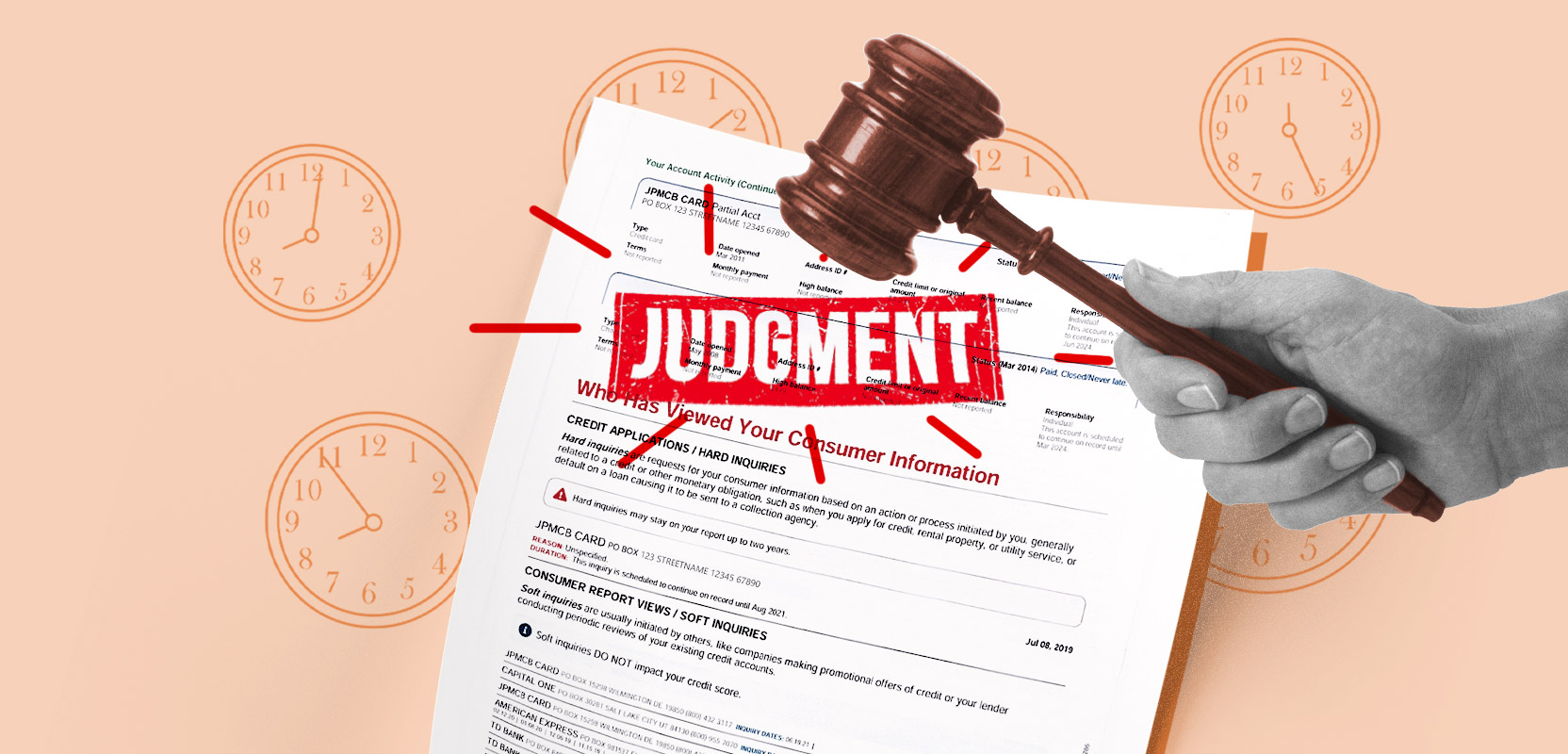Home>Finance>How Long Before A Hard Credit Inquiry Stays On Report


Finance
How Long Before A Hard Credit Inquiry Stays On Report
Published: March 4, 2024
Learn how long a hard credit inquiry stays on your report and its impact on your finances. Understand the effects of credit inquiries on your credit score.
(Many of the links in this article redirect to a specific reviewed product. Your purchase of these products through affiliate links helps to generate commission for LiveWell, at no extra cost. Learn more)
Table of Contents
**
Introduction
**
Welcome to the world of credit reports, where every financial move you make can have a lasting impact on your creditworthiness. One of the crucial aspects that can influence your credit report is the presence of hard credit inquiries. Understanding the implications of hard credit inquiries and their longevity on your credit report is essential for maintaining a healthy credit profile.
As you navigate the complex landscape of credit scores and reports, it’s vital to comprehend the significance of hard credit inquiries and their potential effects on your financial standing. This article aims to demystify the concept of hard credit inquiries, shedding light on their duration on credit reports and the impact they can have on your overall credit score.
Whether you’re planning to apply for a mortgage, car loan, or credit card, being aware of the implications of hard credit inquiries will empower you to make informed decisions and take proactive steps to safeguard your creditworthiness. So, let’s delve into the world of hard credit inquiries and unravel the mysteries surrounding their presence on your credit report.
**
What is a Hard Credit Inquiry?
**
Before delving into the duration and impact of hard credit inquiries, it’s crucial to grasp the fundamental concept of what constitutes a hard credit inquiry. When you apply for credit, whether it’s a loan, credit card, or mortgage, the potential lender will assess your creditworthiness by accessing your credit report from one or more credit bureaus. This process triggers what is known as a hard credit inquiry, also referred to as a hard pull or hard inquiry.
A hard credit inquiry involves a thorough review of your credit history and provides the lender with a comprehensive overview of your financial behavior, including your payment history, outstanding debts, and the length of your credit history. Unlike soft credit inquiries, which occur when you check your own credit report or when a potential employer conducts a background check, hard inquiries are initiated when you actively seek new credit. It’s important to note that hard inquiries are recorded on your credit report and may impact your credit score.
Understanding the distinction between hard and soft credit inquiries is pivotal, as it enables you to discern the potential ramifications of your credit-seeking activities. While hard inquiries are an integral part of the credit evaluation process, their presence on your credit report can have varying implications, particularly in relation to the duration for which they remain visible to potential lenders and their impact on your credit score.
**
How Long Does a Hard Credit Inquiry Stay on Your Credit Report?
**
Once a hard credit inquiry is initiated, it becomes pertinent to understand the duration for which it will be documented on your credit report. Typically, hard inquiries remain on your credit report for two years. This means that potential lenders and creditors can view these inquiries when assessing your creditworthiness for a significant period after they occur.
While hard inquiries are visible to creditors for two years, it’s important to note that their impact on your credit score diminishes over time. In the initial stages, a hard inquiry may have a minimal effect on your credit score, but as time elapses, its significance wanes. This is particularly relevant when considering the impact of multiple hard inquiries within a short timeframe. FICO, the most widely used credit scoring model, acknowledges that consumers may shop for the best terms on a loan without incurring multiple penalties, as long as the inquiries are made within a certain window, typically 14 to 45 days, depending on the version of the FICO scoring model being used.
Furthermore, it’s essential to recognize that while hard inquiries may persist on your credit report for up to two years, their influence on your credit score is minor compared to other factors, such as payment history and credit utilization. As such, while it’s prudent to be mindful of the frequency with which hard inquiries are made, their long-term impact on your credit profile is relatively limited.
Understanding the lifespan of hard credit inquiries on your credit report empowers you to make informed decisions regarding credit applications and enables you to strategize effectively to minimize their potential impact on your credit score.
**
Impact of Hard Credit Inquiries on Your Credit Score
**
Hard credit inquiries can have a measurable impact on your credit score, albeit to varying degrees. When a potential lender or creditor reviews your credit report as a result of a hard inquiry, it signifies that you are actively seeking additional credit. This can raise concerns about your financial stability and the potential risk associated with extending further credit to you. As a result, hard inquiries are factored into your credit score calculation and may lead to a temporary dip in your score.
While the precise impact of a hard inquiry on your credit score can vary based on your individual credit profile, it’s generally considered a minor factor in the overall scoring algorithm. According to FICO, the impact of a single hard inquiry on your credit score is typically minimal, often resulting in a decrease of fewer than five points. However, if you have multiple recent hard inquiries, the cumulative effect can be more pronounced and may raise red flags for potential lenders.
It’s important to recognize that the impact of hard inquiries is transient, and their influence on your credit score diminishes over time. As hard inquiries age and approach the end of their two-year lifespan on your credit report, their effect on your credit score becomes less significant. This underscores the importance of adopting responsible credit-seeking behavior and being mindful of the frequency with which you apply for new credit.
While hard inquiries can lead to a temporary decrease in your credit score, it’s essential to maintain a balanced perspective. Other factors, such as your payment history, credit utilization, and the length of your credit history, carry far more weight in determining your overall creditworthiness. By managing these aspects prudently, you can mitigate the impact of hard inquiries and maintain a healthy credit score.
**
How to Minimize the Impact of Hard Credit Inquiries
**
While hard credit inquiries are an inevitable aspect of the credit application process, there are proactive steps you can take to mitigate their potential impact on your credit score and overall creditworthiness. Consider the following strategies to minimize the repercussions of hard inquiries:
- Plan Your Credit Applications: Before applying for new credit, carefully assess your financial needs and research potential lenders. By planning your credit applications strategically, you can minimize the frequency of hard inquiries and avoid unnecessary hits to your credit report.
- Leverage Rate Shopping Protections: When shopping for the best terms on a loan, take advantage of rate shopping provisions offered by credit scoring models. FICO, for instance, allows a window of 14 to 45 days, depending on the version of the scoring model, during which multiple inquiries for the same type of credit are treated as a single inquiry.
- Monitor Your Credit Report: Stay vigilant about monitoring your credit report for any unauthorized or erroneous hard inquiries. If you spot any inaccuracies, promptly dispute them with the respective credit bureau to have them rectified.
- Focus on Credit Building: Emphasize building a positive credit history by making timely payments, keeping credit card balances low, and refraining from opening multiple new accounts within a short timeframe. A strong credit foundation can offset the impact of hard inquiries.
- Consider Alternative Credit Options: Explore alternative credit options, such as secured credit cards or credit-builder loans, to establish or rebuild your credit without triggering numerous hard inquiries.
By implementing these proactive measures, you can navigate the credit application process with greater confidence and minimize the potential impact of hard inquiries on your credit profile. Additionally, maintaining a prudent approach to credit management and being mindful of your credit-seeking activities can contribute to a resilient and healthy credit score.
**
Conclusion
**
Understanding the nuances of hard credit inquiries and their implications on your credit report is a pivotal aspect of managing your overall credit health. While hard inquiries may linger on your credit report for up to two years, their influence on your credit score is relatively modest, especially when compared to other significant factors such as payment history and credit utilization.
By comprehending the duration for which hard inquiries remain visible to potential creditors and the strategies for mitigating their impact, you can navigate the credit application process with greater awareness and strategic foresight. Planning your credit applications thoughtfully, leveraging rate shopping protections, and focusing on building a positive credit history are instrumental in minimizing the repercussions of hard inquiries.
Ultimately, maintaining a balanced approach to credit management, staying informed about your credit report, and adopting responsible credit-seeking behavior are key elements in safeguarding your creditworthiness. While hard inquiries are an inherent part of the credit evaluation process, their transient impact on your credit score underscores the resilience of a strong credit foundation.
As you embark on your financial journey, remember that staying proactive, informed, and strategic in your credit-related decisions can pave the way for a robust and enduring credit profile. By prioritizing prudent credit management and being mindful of the factors that influence your credit score, you can navigate the realm of hard credit inquiries with confidence and clarity.














